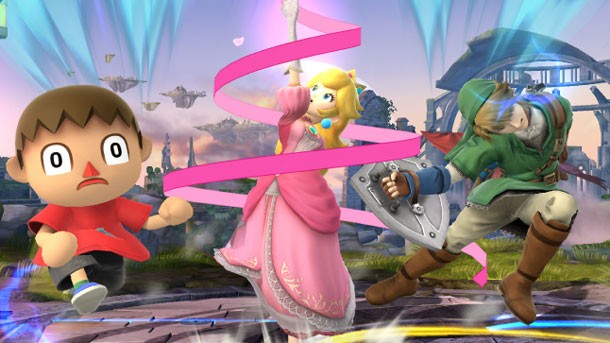Our extra-large special edition is here. Subscribe today and receive the 25% longer issue at no extra cost!
Analysis – Low Wii U Sales Limit Software Success

This morning’s news that Nintendo missed its nine million unit Wii U forecast came as no surprise. The target was a long shot under the best of circumstances. The bigger problem is that even the best upcoming Wii U titles like Super Smash Bros. U, Donkey Kong Country: Tropical Freeze, and Mario Kart are likely to be hamstrung by simple math.
For comparison, Pokémon X & Y sold 4 million units in the first two days against an install base of about 35 million. That represents just over 10 percent of 3DS owners. Donkey Kong Country: Tropical Freeze will release on February 13 in Japan and February 21 everywhere else. For it to sell a similar number of copies worldwide by the close of the fiscal year, it would represent an attachment of nearly two-thirds of Wii U owners. That’s simply unreasonable. A smaller install base also means that Nintendo is recuperating less on each high margin marquee title.
Nintendo isn’t going anywhere, but it’s definitely playing from behind when it comes to the Wii U. With third-party support all but gone and unlikely to come back during this hardware cycle (more on this in a moment), Nintendo has to rely on first-party software to sell consoles and build the install base. Unless those titles start coming faster, Nintendo will lose the perception war at retail by virtue of shelf presence. Additionally, with an install base that is only projected to be about 6.3 million by March 31, the hard cap on software sales is very low.
As for third party publishers, the drop off in Wii U support means that even if console sales pick up and development resumes for the platform, studios will be behind the curve. A lack of experience with the hardware means that they won’t have figured out the tricks and nuances to coax more out of a system that is already less powerful than the Xbox One and PlayStation 4. Getting games to look comparable will be difficult until developers are more accustomed to the system.
Nintendo still boasts a significant market capitalization (the total value of outstanding stock shares) of $20.47 billion, as compared to Sony’s $17.83 billion (the latter of which had a strong close to 2013). The company has proven that the Wii U is a viable system that can be home to great games like Super Mario 3D World, Lego City Undercover, and Pikmin 3. The challenge is to get the system into more hands and increase the potential market for software purchases.
Development is costly (and in the case of Nintendo, often protracted), and a smaller install base means a bigger struggle to break even and profit on each tentpole title. A diminished pool of third-party developers means reduced licensing fees (bread and butter for platform holders). Something needs to change at Nintendo to give the great franchises the audience they deserve.

Get the Game Informer Print Edition!
Explore your favorite games in premium print format, delivered to your door.
- 10 issues per year
- Only $4.80 per issue
- Full digital magazine archive access
- Since 1991









